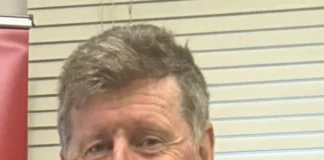
Speaking after a recent meeting with senior officials of the Department of Agriculture, Food & Marine to discuss the Terms & Conditions of TAMS 3, the Chairperson of North & East Cork ICMSA, Maurice Walsh, said that this latest attempt to target grants at modernising farm plants, infrastructure and machinery was giving rise to more questions than it was providing answers.
“It’s just practically impossible to work out what is going on around the issue of costings. We have to start on the basis that the Department must know that the rates under TAMS 2 were hopelessly adrift of the actual prices. If we proceed from that point and we accept that the Department was genuine in its efforts to reconnect the costings in TAMS some way towards the actual prices of construction materials, then we have to ask why we see the increases under a majority of headings going up by 12% when the actual inflation to be applied to these materials from the figures in TAMS 2 would have been well in excess of that.
“ICMSA asks again: if the Department is going to revise the costings to make TAMS meaningful and re-energise it, then would they not at least have taken this opportunity to make the costings someway realistic? Why would you look at these figures and still leave them so obviously short of the real costs?” asked Mr Walsh.
He said the approach to dairy equipment was even more puzzling and pointless.
“Where TAMS 3 does make some attempt, its costings are still double-digits short of the actual costs – but at least some increase is being acknowledged. But under no less than 10 of the 15 various items under dairy equipment, we see no increase at all – absolutely nothing. So, the sector with the greatest focus on sustainability has had grants towards that end actually cut – because where inflation has run at the rates we’ve seen and grants ‘stand still’ then it amounts to a cut in real terms.
“ICMSA won’t be the only organisation and body that find this approach quite astonishingly negative and short-sighted. Family dairy farms have, yet again, been singled out by the Department to have the ‘screws turned on them’ and rather than helping that sector towards the sustainability it claims to seek, the Department has chosen to cut that sector – the ‘flagship’ export earner – adrift and hinder rather than help,” said the Kilbehenny farmer.
“We get no satisfaction from observing this, but the fact is that TAMS 3 is out-of-date already in the first few weeks of launch. A huge opportunity will be missed and the responsibility for that failure lies, I regret to say, squarely at the feet of the Department who came halfway to the mark under some headings and didn’t even try to come under other even more important headings,” said Mr Walsh.
The veteran Cork ICMSA figure said that genuine puzzlement would also focus on the length and timing the tranches and he specifically identified the slurry storage option which was so delayed that it would be impossible to get any work done under this heading this year.
“There’s a real frustration around the timing of this tranche: it’s been ‘pushed out’ to the extent that successful farmers will end up looking for a contractor in September to start doing this work just as the days get shorter and the conditions get worse. Surely this should have been brought forward so that at least the farmers were approaching contractors in June, and we were giving ourselves a chance to have the work done in optimum conditions?
“The timing and sequencing of this hugely important work that goes right to the heart of the drive to sustainability just seems perverse and obstructive.” He concluded by asking the Department to “look again” at the Women In Agriculture scheme due to open at the end of May and really make an effort to cut through any red tape that might work against women farmers accessing the scheme.”







